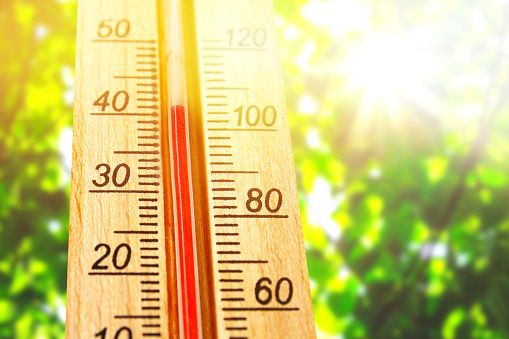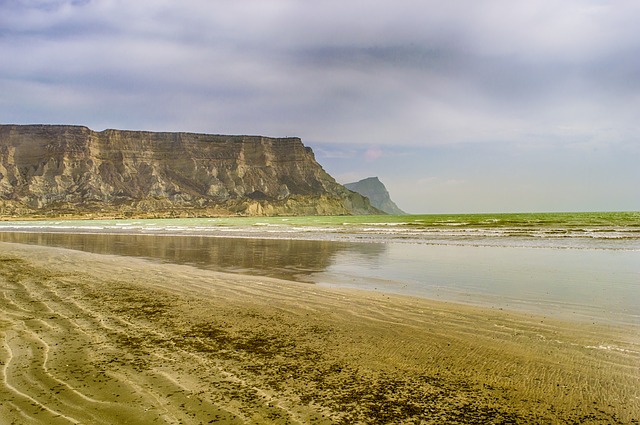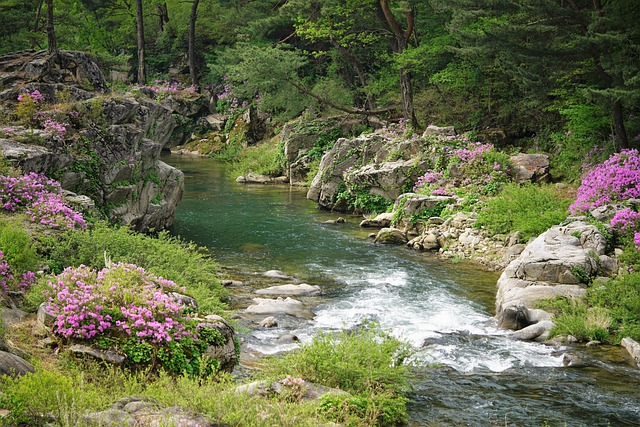WHAT ARE HEATWAVES AND WHY ARE THEY BECOMING MORE FREQUENT IN PAKISTAN AND INDIA?
A heat wave is a two-day or longer stretch of exceptionally hot weather. Temperatures must be above the historical norm for a certain location to be termed a heat wave. A heat wave is a result of high-pressure arrival in a region, in which air from the atmosphere’s highest layer is drawn towards the ground, as a result, it becomes warm and compressed. This high warm pressure makes it difficult for other weather to move in an area so that’s why heat waves remain in a region for several days. Harsh sunlight that further heats the system. All these factors involve producing high temperatures and causing heat waves.
In Pakistan and its neighboring country India, an estimated 90 deaths occurred due to heatwaves in 2022. It also caused a glacial outburst in northern Pakistan and fires in India’s forest. India’s crop yields were reduced by the heat. According to India’s Meteorological Department, several monitoring stations reported temperatures ranging from 45°C to 50°C. This is reported after a heat wave in late April and early may during which temperature reached 43-46°C. In Pakistan temperature reached 50°C. According to Pakistan’s Meteorological Department, the mid-day temperature of the swath of the nation was 5-8°C above average. Water supply, agriculture, and human and animal health all suffered as a result of the hot, dry weather. You might also want to read the following, These 11 Countries Risk Instability Due To Climate Change, as two of these highly vulnerable countries are Pakistan and India.
CAUSES OF HEATWAVES IN PAKISTAN AND INDIA
1. Climate Change
Climate experts discovered that the heatwave was around 30 times more likely as a result of human-caused climate change. According to experts, climate change played a part in boosting the risk of the spring 2022 heat wave in India and Pakistan.
Also read: What is Climate Change Adaptation? – Importance and Methods
2. Green House Gases and Global Warming
According to scientists, the buildup of greenhouse gases in the atmosphere is contributing to India and Pakistan’s rising temperatures. The catastrophic heat wave that has engulfed most of Pakistan and India this spring has become hotter and more likely to occur as a result of global warming. For more info: Global Warming – Causes, Effects, and Solutions.
Also read: Can We Do Something About Earth Heating Up Or Is It Too Late?
3. Environmental Degradation
The main causes of Pakistan’s continuous heatwaves are deforestation, carbon emissions, and pollution. As much as humans require a healthy environment to thrive, our activities have proven to be hazardous to our ecosystems.
4. Urban Heat Islands
The fact that cities have become concrete jungles that absorb and radiate more heat causing them to become Urban heat islands is not really helping with the heat waves. Heat waves seem more severe in metropolitan cities due to more concrete, asphalt roads and close to none greenery. To know more about Urban Heat Islands, check out: Urban Heat Islands – Causes, Effects, and Solutions
5. Urbanization
More urbanization means bigger cities, more houses, more roads and more concrete to build all of this and lesser trees – all of which increase the impacts of heat waves and make them worse. To learn more about urbanization, check out: Urbanization – Causes, Effects, and Solutions
EFFECTS OF HEATWAVES IN PAKISTAN AND INDIA
1. Health Crisis
Heatwaves have caused serious health risks and triggered public health emergencies. Heat strokes and heat exhaustion are caused by prolonged heat exposure, as are many respiratory and cardiovascular disorders.
2. Effect on Economy
Heatwaves also have a negative impact on several areas of the economy. For example, the loss of working days has a significant impact on the livelihood of poor and marginal farmers.
3. Reduce Agriculture Yield
High temperatures caused due to heat waves have a detrimental influence on crop development which is an essential element for a nation. It is due to disturbance in soil moisture level, accelerate photosynthesis change in respiration, all these factors affect plant growth and development.
4. Effect on Life under the Sea
Heatwaves have a serious negative impact on the life under the sea as even the slightest changes in the temperature of sea water can have huge implications. For more information, please read: Heatwaves Are Killing Off Sea Life In Billions – Destroying The Ecosystem
5. Wildfires, Forest fires and Bush fires
Heatwaves are directly linked to wildfires in forests which themselves are terrible for the environment, human population and animal/plant species of that area. To know more about this, check out: Global Heat Wave and Wildfires – Causes, Effects, Solutions
WHAT WE CAN DO TO REDUCE HEATWAVES IN PAKISTAN AND INDIA?
1. Tree Plantation
Trees are not only known to provide shade they are also responsible to make the air clean and cool. Some trees such as Ficus religiosa release oxygen during the night also, so plant these trees more and more.
2. Reflective or Lighter Roofs or Wall Paint
Roofs or wall paint play an important role in decreasing the hotness so replace darker places with light and reflective materials.
3. Make Use of Energy-Saving Appliances and Equipment.
Using energy-efficient appliances and equipment in your house can assist to reduce the stress on the electric grid during heat waves, guaranteeing a more consistent supply of electricity in your neighborhood.
You may also like: Ways To Reduce Global Warming and Stop Earth from Heating Up
PRECAUTIONS DURING HEATWAVES IN PAKISTAN AND INDIA
- Stay hydrated even if you don’t need water, try to carry a little water bottle at all times with you.
- Keep your children or pets inside the home in a cool environment.
- Never leave your babies or pets in cars during the day.
- Stay at home from 10 a.m. to 4 p.m. if you can and only go out when necessary, because it is the warmest time of the day.
- Try to wear light cotton light-colored, loose clothes.
- Make sure you always cover your head with a light-coloured cloth or cap etc. during day time.
- Make your home green! Use green-colored curtains, roofs, or walls reduce heat.
- Plant more trees in your home, offices and the area you live in.
- Finally, if you feel dizzy, confused or nauseous and have a rapid heartbeat and breathing you might be suffering from a heat stroke! So sit in some shaded area preferably one with a fan, ask for help, drink water and cool your body by pouring water and contact rescue services, your family and your doctor immediately.
CONCLUSION:
In summary, heatwave is caused by high pressure in a location, in which air from the highest layer of the sky is dragged towards the ground, becoming heated and compressed. Humans-caused climate change has a major role in causing heat waves. Take care to protect yourself from the effects of hot weather induced by heat waves.
Also check out: What is Ocean Acidification? – Causes, Effects and Solutions
I hope you all liked this post! Please comment below if you have any suggestions, comments, or feedback! We at #envpk love hearing from our readers! Thanks!





8 Comments
Planting trees can provide shade and cool the environment.
Planting trees can provide shade and cool the air and environment.
Yes, very true Ms. Fiza. Planting trees is extremely important if we wish to make these climate change induced heatwaves any better..
Informative 👏
Thank you Ms. Iqra!
Aoa kya ap bata sakti hain is k lia solution kya kr sakty hain agr next time yhe heat future dobra ai tu
Informative knowledge . Keep it up.
Thank you!